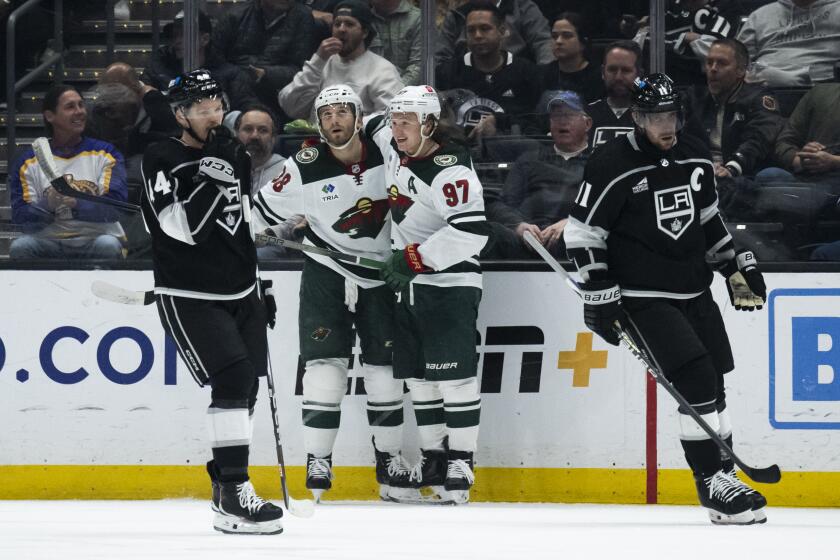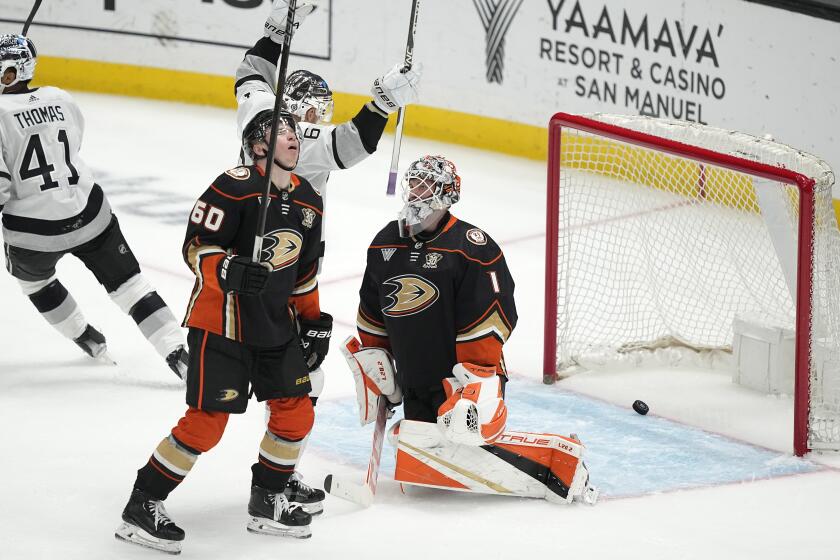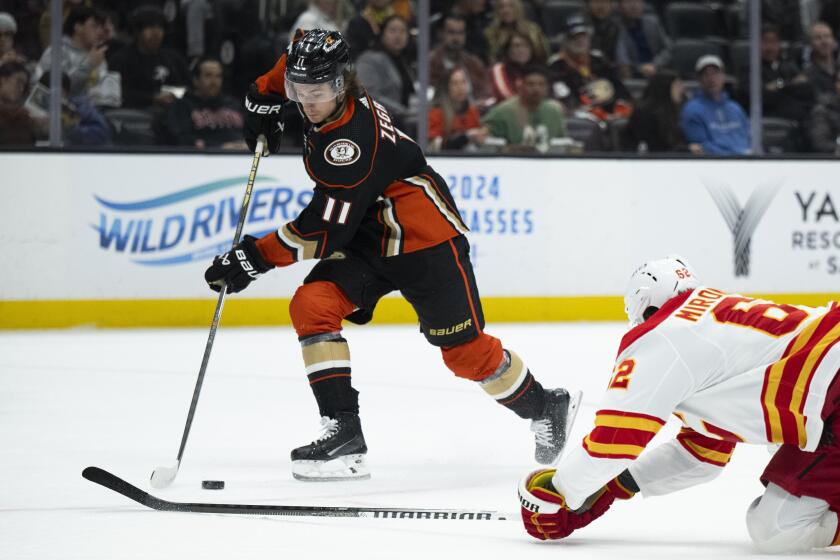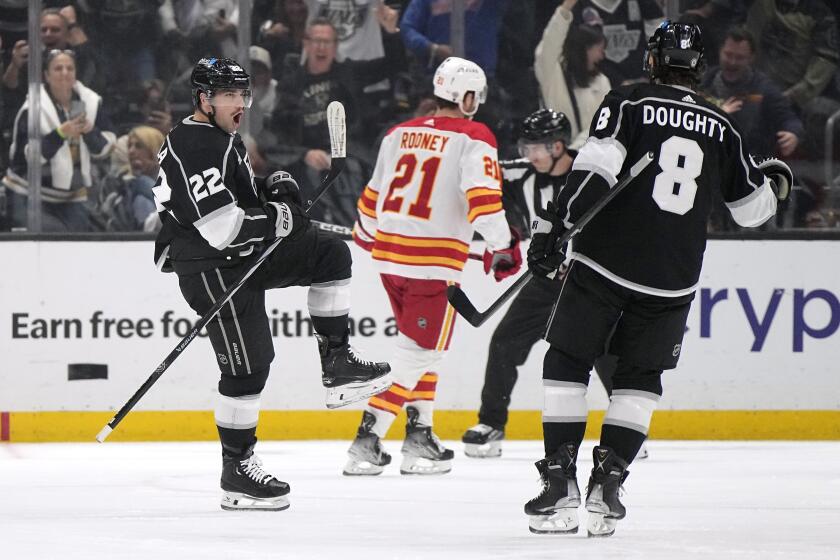Kings have to figure out how to become more attractive
The question facing the Kings isn’t why Ilya Kovalchuk turned them down. It’s how can they become a desirable destination for the elite free agents who can transform them into perennial Stanley Cup contenders?
Kovalchuk, unbending in his quest for an Alexander Ovechkin-like 10-year, $100-million deal, said no to the Kings on Sunday. General Manager Dean Lombardi made at least two offers but the sides were far apart. Not a million or two -- more like 10 times that in total value.
He would have been exciting and maybe Coach Terry Murray could have taught him how to play defense, but $100 million is a lot, especially with the labor deal expiring in 2012 and owners rumbling about pushing the salary cap down. The Kings want to re-sign Drew Doughty -- who will command megabucks -- as well as Jack Johnson and Wayne Simmonds and chose to funnel their resources toward that trio. That’s defensible, but will those players want to stay if the Kings can’t draw top-tier free agents to fill the holes in their lineup?
Kovalchuk’s agent, Jay Grossman, said his client was looking to announce a decision Monday but later amended that to say Kovalchuk had narrowed his choices with “details to be finalized.” The delay doesn’t mean the Kings are back in the hunt: team insiders said they’re out. So, apparently, are the New York Islanders.
The New Jersey Devils are the most likely to win his signature but they must move some bodies first. During the summer teams can be 10% over the $59.4-million cap limit but must be under the cap when the season opens.
Maybe there’s the answer for the Kings: they can dine on the Devils’ leftovers now that all the top free agents are sewn up. Of course, it will cost the Kings players or draft picks, which they wouldn’t have given up if they had signed Kovalchuk or a top-end defenseman.
New Jersey has depth at center and probably would trade Brian Rolston and his $5.062-million cap hit for the next two seasons, but he’s 37 and that’s expensive. Toronto is willing to trade defenseman Tomas Kaberle but probably would want prospects and picks in return.
Several teams are over or near the cap and will make deals. The Kings like often-injured Philadelphia Flyers left wing Simon Gagne, who has one year left at $5.25 million. The Calgary Flames, close to the cap, might deal a defenseman, maybe hard-hitting Robyn Regehr.
The Boston Bruins reportedly have considered trading center Marc Savard, who has a cap hit of just over $4 million through 2016-17. He’d be a good fit, but he has a modified no-trade clause and can list five teams he’d be willing to play for. There’s no guarantee he’d agree to come here.
Which brings us back to why Kovalchuk said no to the Kings, and Marion Hossa did a year ago and Zdeno Chara did in 2006. And defensemen Paul Martin and Dan Hamhuis did last week.
Chara was a long shot. The Kings were bad and Chara decided to stay in the East with its infinitely easier travel, signing with the Bruins. The Kings salivated over Hossa but he wanted to play for a Cup contender and signed with the Chicago Blackhawks.
So the Kings have had to settle for third- and fourth-tier free agents. The exception was defenseman Rob Scuderi, who came here last summer mainly because they gave him more security and money -- four years and $13.6 million -- than anyone else.
The Kings targeted the smart and steady Martin but he signed with Pittsburgh for $25 million over five years. Mobile Dan Hamhuis was Plan B but he wanted to be close to home and signed with Vancouver.
It’s a chicken-and-egg dilemma for the Kings. They can’t attract elite free agents until they become a Cup contender, but they can’t become a contender until they lure players they haven’t developed -- a productive winger, second-line center and fleet defenseman.
They will try to fill holes with prospects such as centers Brayden Schenn and Andrei Loktionov and defensemen Thomas Hickey, Viacheslav Voynov and Jake Muzzin. That’s a lot to ask.
Because the Kings can’t pick up and move to the East, they have no choice but to hope they have drafted and developed players well enough to become a choice destination before their talented kids become frustrated by early playoff exits and flee, and the rebuilding process has to start all over again.
helene.elliott@latimes.com
twitter.com/helenenothelen
More to Read
Go beyond the scoreboard
Get the latest on L.A.'s teams in the daily Sports Report newsletter.
You may occasionally receive promotional content from the Los Angeles Times.







